Lying on a plastic sheet with no pants on, I am discussing the trailer of the new Ryan Gosling film.
It’s not what I’d call the most dignified way to spend a Wednesday morning.
But such is life when mysterious health issues mean you regularly find yourself getting intimate with an ultrasound probe before breakfast.
As a general rule, I put hospitals, scans, injections and anything else medical in the box in my brain marked ‘Absolutely Terrible Times’.
I hate it all. Everybody does, because it’s horrible.
You feel like a farm animal, herded from room to room, poked and prodded and talked about as if you’re not there.
You’re desperate for answers, while dreading what they might be. If you’re anything like me, you’re a wreck.
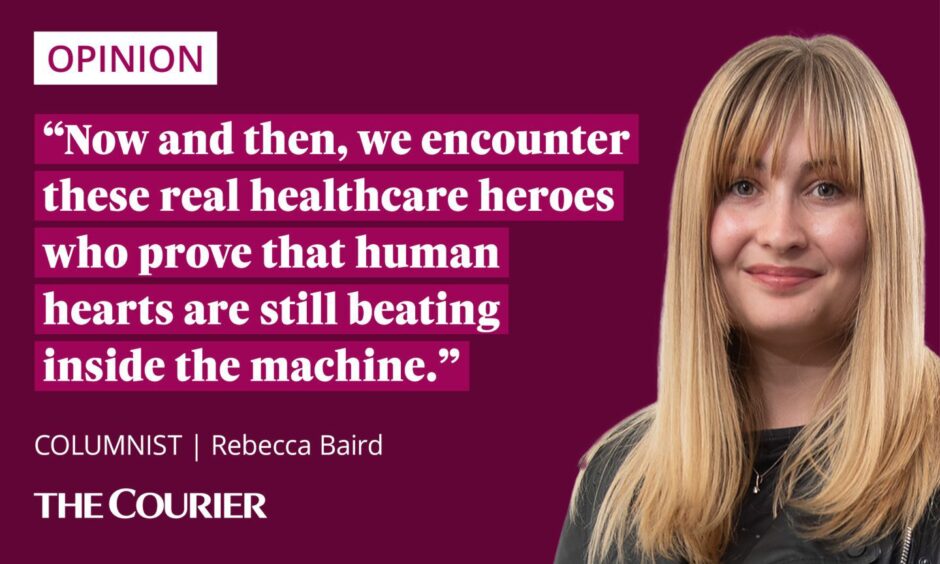
Yet this time, when I leave, I don’t feel my usual combination of anxious, drained and guilty for daring to have a body which isn’t working correctly.
Instead, as I walk round the weird little path at Kings Cross Hospital to my car, I’m laughing. Because my nurses were funny.
Dundee nurses’ banter put me at ease
They’re both that type of Dundonian woman who is completely unflappable and unfazed by anything.
They call me by my name throughout the appointment, and banter with one another, teasing each other about some in-joke I don’t get, but it still amuses me.
They seem happy to be there. Happy to help me. It’s instantly relaxing.
As I get up on the cold table, the papery gown doing absolutely nothing for my sense of modesty, one begins talking about her dog, a German Shepherd.
I mention I had one too until last year; we bond over the notorious ‘terrible twos’ of an Alsation puppy. For that 30 seconds, I forget that I’m so exposed.
The other lady asks what I’m up to that evening, and when I mention I’m going to see The Fall Guy, with Ryan Gosling and Emily Blunt, she lights up.
“I love him!” she squeals.
“Me too,” I say, while pretending the (also lovely) scan tech isn’t rummaging around my abdomen. I imagine myself in the cinema, with my boyfriend, long after this part of the day is done. It’s a nice thought.
And then it’s done.
These aren’t particularly deep or meaningful interactions. Just small talk. But they are genuinely warm, and it makes a difference.
I feel like I’ve not had an Absolutely Terrible Time, just a Mildly Uncomfortable Morning.
GP follow-up calls show doctors care
The very next day, my GP calls me up with my results. I didn’t expect her to be so prompt; I didn’t expect her to call me at all, I assumed I’d have to chase this up.
I almost panic.
“Don’t worry,” she assures me, calm and level headed and paying attention. “We’re going to get to the bottom of your symptoms. Here’s what happens next.”
If you’ve also suffered from chronic, undiagnosed health issues, you’ll understand the relief that flooded through me when I heard those words. Because it’s exhausting.
Not only to be in pain, and then worry about the pain, but then to navigate the added worry about whether or not your pain will be taken seriously.
Having your pain dismissed – or outright disbelieved – by doctors, the people who are supposed to help you, is a special kind of soul destroying. Because for most of us, there’s nowhere else to turn.
It can make a person really cynical, and make the healthcare system feel much more hostile than healing.
But then there are the real life angels who appear to you when you’ve got the automated phone menu of your GP surgery’s reception down to a science, and memorised every single poster in the waiting room.
When your life is just a circuit of hot water bottles, cold compresses and popping paracetamols like sweets even though they don’t so much as touch the sides.
These real life angels will not go glassy-eyed when you explain your pain for what feels like the millionth time.
They will do something about it.
Compassion and communication are key
When we talk about ‘healthcare’, we tend to focus on the health: symptoms, diagnosis, prognosis, treatment.
But the ‘care’ is just as important – compassion, communication, and if it’s going, a cheerful distraction.
After 13 years of austerity and unprecedented pressure on the NHS, it’s easy to feel like being a patient and being a person are two different things.
So often, we are told to take a number, join a list, call back later.
But now and then, we encounter these real healthcare heroes who prove that human hearts are still beating inside the machine.
And I have two words for them: Thank you.
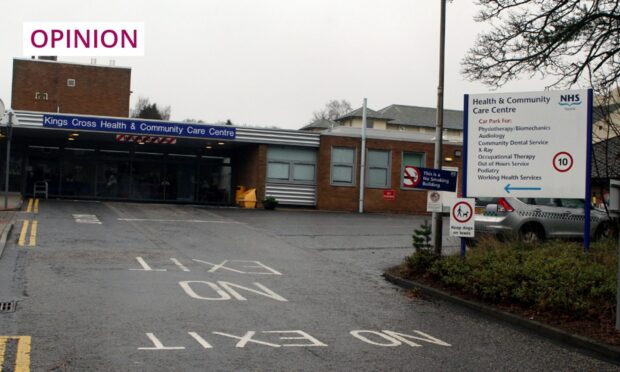
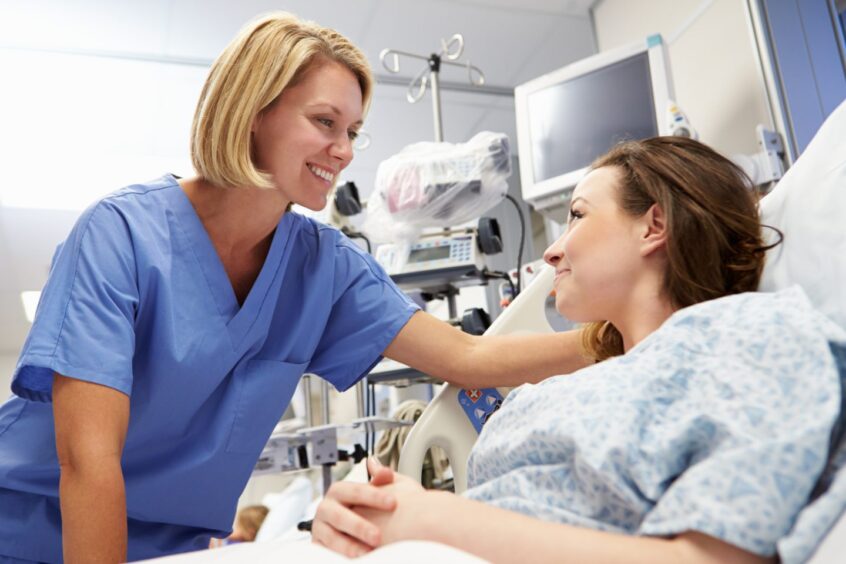
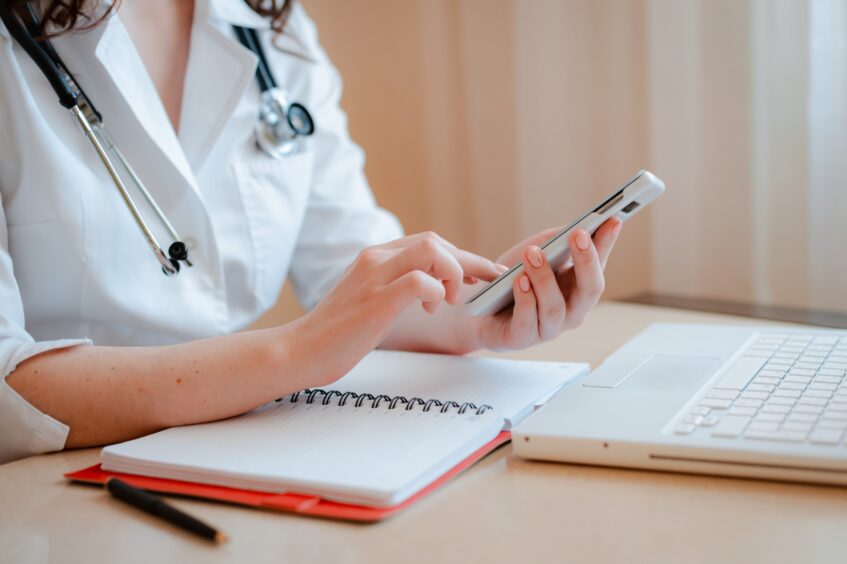
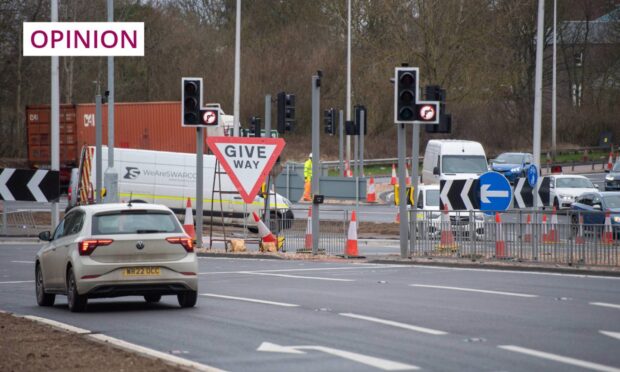
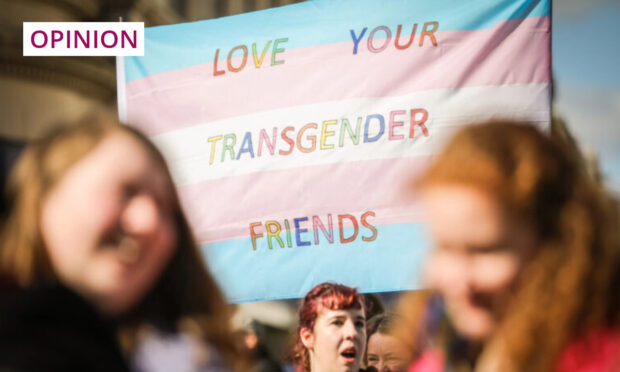
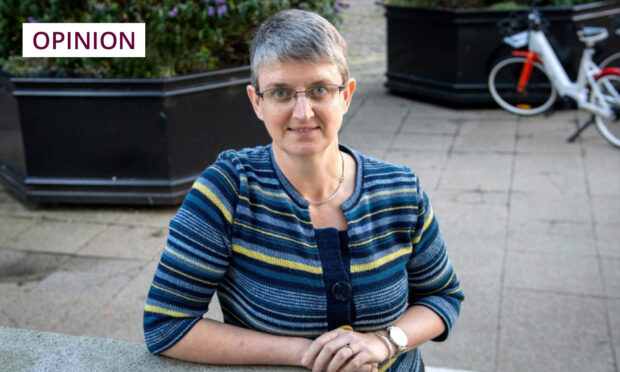







Conversation